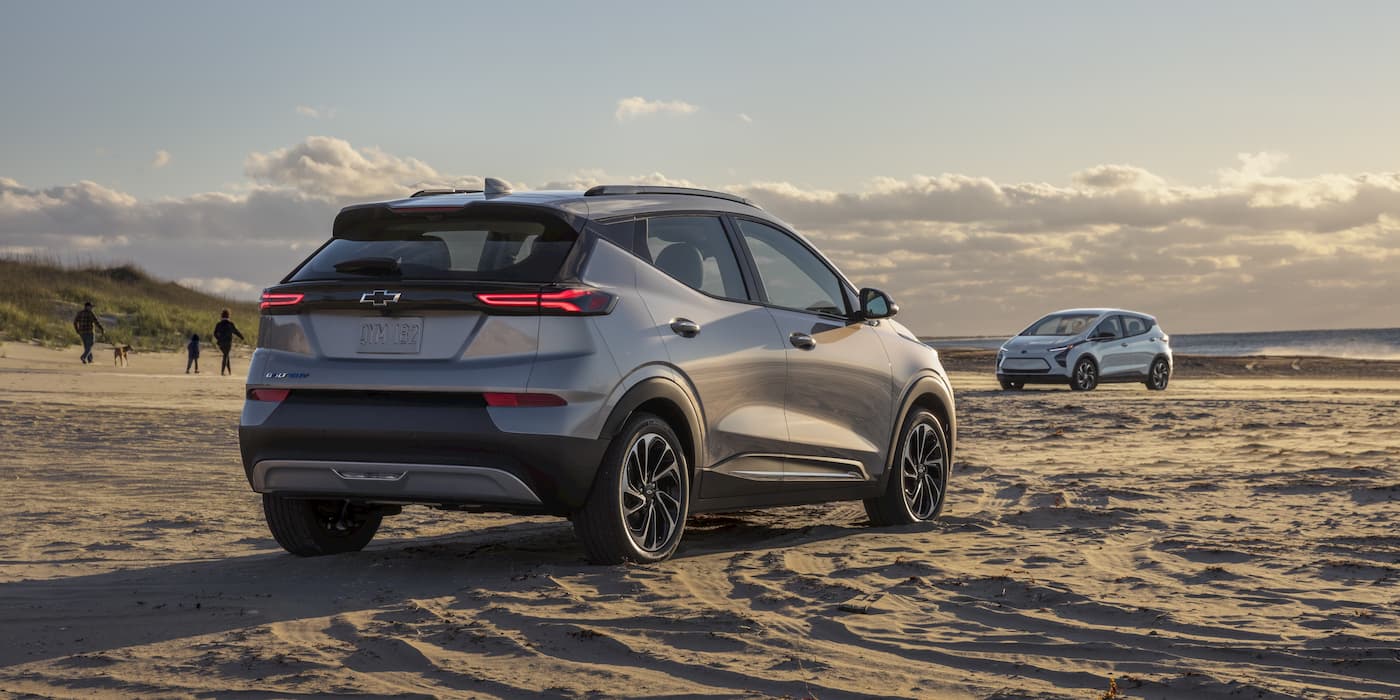
A few years back, General Motors had to recall 142,000 Bolts in a major fiasco due to fire risk. This time around, however, just a small number of Bolts are being recalled, only 107. But the risk of fire is deemed high – according to the NHTSA – if these vehicles are charged to full or nearly full capacity.
The National Highway Traffic Safety Administration (NHTSA) posted a recall of the Chevrolet Bolt EVs and its larger version, the EUV, covering model year 2020-22 that were recalled and repaired previously over the same risk. Apparently, the previously installed advanced diagnostic software, which is supposed to detect whether or not the battery is defective, is itself faulty, which could, in turn, lead to a fire risk.
“The installation of advanced diagnostic software may have failed,” the NHTSA stated. “As such, the high voltage battery could catch fire when charged to full or nearly full capacity.”
Chevy dealers will reinstall the software free of charge, of course, to fix the problem. Meanwhile, the NHTSA advises owners of the recalled vehicle to take steps to avoid a fire risk, including setting the “target charge level” feature in the vehicle to 90%, parking outside after charging, and avoiding depleting the battery to 70 miles of range remaining.
GM spokesman Kevin Kelly told Detroit Free Press that the company is not aware of any Bolts having caught fire due to the issue, and that this is a voluntary recall to correctly install advanced diagnostic software from “an earlier field action involving these vehicles.” He added: “The software may fail to identify defective battery modules that require replacement, increasing the risk of a potential vehicle fire.”
GM Bolt owners suffered heaps of frustration following three recalls of the vehicles starting in late 2020, with a total of 142,000 Bolt EVs recalled a year later. Those recalls involved model year 2017 going through model year 2022. But unlike this latest recall, those recalls were due to battery defects that could start a fire, with 18 Bolts catching fire while parked. GM confirmed that 13 of those fires were caused by defective batteries.
LG Energy Solution, the battery maker for the Bolt, replaced the batteries with new battery packs and gave Bolt owners limited warranties of eight years or 100,000 miles. LG also reimbursed GM for $1.9 billion in costs and fees due to the recall.
Last December, GM cut 945 jobs from the assembly plant in Lake Orion due to the company ending its production of the Bolt EV and EUV. The factory is slated to produce Chevrolet Silverado EV and GMC Sierra EV on GM’s new Ultium EV platform after a $4 billion investment, but the company has pushed back the launch from 2024 to late 2025. Of course, GM says it is bringing back the popular Chevy Bolt EV, at least the EUV, with the next-gen model to reemerge on the Ultium platform in 2025.
Since, finding a Bolt hasn’t been easy, with only a handful spotted on dealership lots – but we can expect a re-emergence of its best-seller next year.
Photo credit: General Motors Chevy Bolt
If you’re an electric vehicle owner, charge up your car at home with rooftop solar panels. To make sure you find a trusted, reliable solar installer near you that offers competitive pricing on solar, check out EnergySage, a free service that makes it easy for you to go solar. They have hundreds of pre-vetted solar installers competing for your business, ensuring you get high quality solutions and save 20-30% compared to going it alone. Plus, it’s free to use and you won’t get sales calls until you select an installer and share your phone number with them.
Your personalized solar quotes are easy to compare online and you’ll get access to unbiased Energy Advisers to help you every step of the way. Get started here.
FTC: We use income earning auto affiliate links. More.




![Hyundai's EV plant raided by ICE, 'hundreds' taken into custody [Live Updates]](https://i0.wp.com/electrek.co/wp-content/uploads/sites/3/2025/09/Hyundai-EV-plant-raided-ICE.jpeg?resize=1200,628&quality=82&strip=all&ssl=1)







